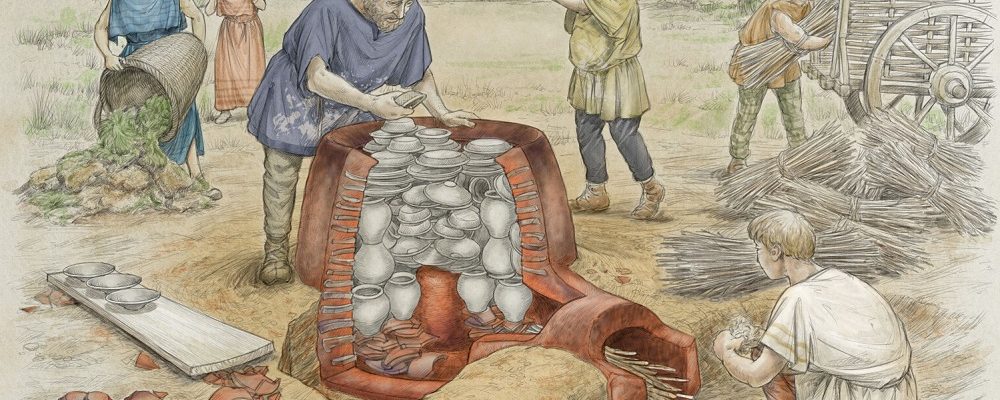We are delighted to invite paper submissions to our Roman Craft session at the RAC/TRAC 2026 conference at Aarhus University, Denmark, on 21-23 May 2026. We have three panels focussing on different aspects of connectivity and identity through crafts, please see the abstract below.
The deadline for paper submissions is 24 October 2025. Please submit your proposal for a 20-minute contribution via this link.
Details of the conference and the list of session abstracts can be found here.
TRAC1
Crafting Connections: Communities, Identities, and Practices in the Roman World
Session organisers: Eniko Hudak; Nicole Berlin; Amy Baker; Adam Sutton; Amy Miranda; Cheyenne Eversole-Spina; Rebecca Nashan
Craft production in the Roman world offers a powerful lens through which to examine social structures, knowledge transmission, and identity formation. Far from being isolated economic activities, crafts were deeply embedded in networks of apprenticeship, community belonging, and cultural expression. This session brings together three thematically related panels to explore how artisans and their work shaped—and were shaped by—the broader social and political dynamics of the Roman Empire. From communities of practice to regional variation and provincial identities, these contributions interrogate the social lives of makers and materials. Together, they offer new approaches for integrating theoretical frameworks and archaeological evidence in the study of Roman crafts.
The first panel discusses connectivity through crafts and creation of dynamic communities of practice across the Roman Empire. It explores how shared activities among artisans created communities of practice—groups formed and sustained through collective knowledge, skill transmission, and embodied interaction. It invites papers that draw on case studies from Roman ceramic production and also beyond, specifically those that foreground the role of micro-styles and object variability in identifying these communities archaeologically. This panel aims to emphasise human-object interaction as a valuable proxy for tracing human-human relationships and aims to refine our methodologies for recognizing such dynamics. In doing so, it contributes to a growing body of scholarship that views craft as a key site for understanding social life in the Roman world.
The second panel zooms in on art and craft production in the eastern provinces of the Roman Empire, where long-standing Greek and Mesopotamian traditions continued to shape local production practices under Roman rule. It aims to analyse regional craftwork through a theoretical lens to challenge reductive, top-down models of Romanization and highlight local agency and innovation. The panel invites papers that are particularly interested in the glocalization of material culture—how local and imperial elements merged in distinctive forms of artistic expression in the eastern provinces. By doing so, the panel aims to contribute to a broader decolonizing effort within Roman archaeology by re-centering marginalized communities and provincial experiences.
The third panel examines the social and cultural identities of craftspeople working in Roman provincial contexts. While previous research has often focused on typologies, workshops, and tools, this panel emphasizes the people behind the practices—how artisans negotiated identity, status, and belonging through their work. It invites papers that draw on archaeological, epigraphic, and visual sources to consider how craft embedded individuals in broader social, economic, and political landscapes. The panel highlights the diversity of provincial craft experiences and promotes interdisciplinary approaches to understanding identity in the Roman world. Taken together, these panels demonstrate the value of craft-focused research for understanding Roman society from the bottom up. They reveal how artisans operated within and across communities, navigated regional traditions, and forged identities through creative engagement with materials. By bringing theoretical Page 14 of 19 innovation into dialogue with empirical evidence, this session advances the study of Roman craft beyond economic production to a rich field of social practice. Craft was never merely about making—it was about belonging, remembering, and negotiating one’s place in a changing imperial world
(Image (c) PCA)

